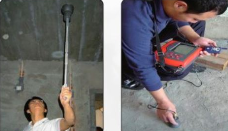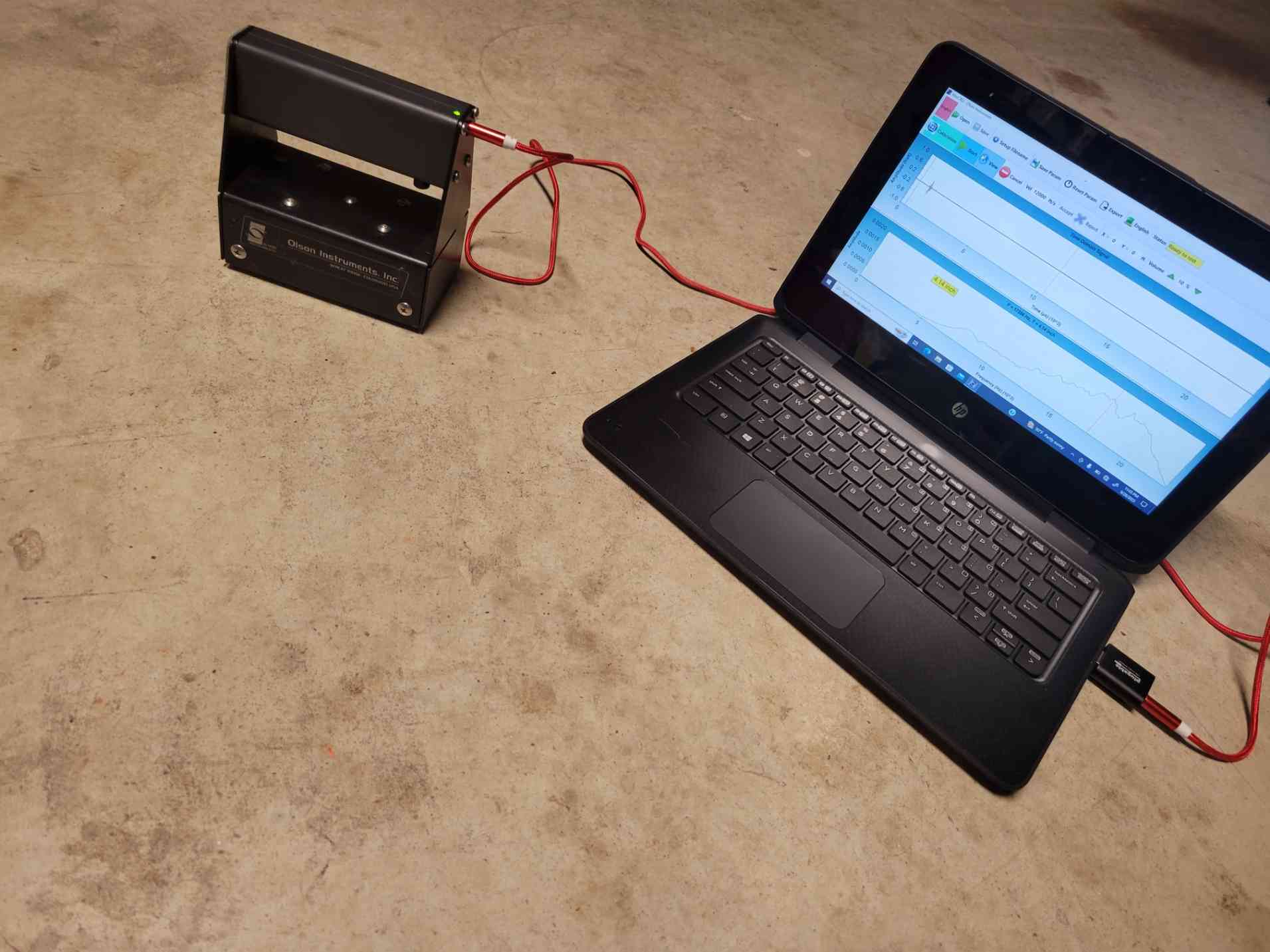Capital Geotechnical Services PLLC provides professional geotechnical engineering consulting services to a variety of clients such as custom home builders, spec home builders, multi-family (condo, apartment, duplex) developers, commercial developers (retail, office, warehouse, industrial), homeowners, architects, and foundation repair contractors.
OUR DESIGN PHASE SERVICES INCLUDE:
- 2D global slope stability analysis
- Soil-related forensic studies to assist with the overall forensic study of a distressed structure (cracked houses, cracked duplexes, cracked apartments, cracked office buildings or hotels, etc.)
- Forensic studies of low volume street pavement (parking lots, local residential streets, residential or commercial collectors)
OUR CONSTRUCTION PHASE SERVICES INCLUDE:
- Documentation of soil improvement excavations (e.g. perimeter depths).
- Inspection and documentation of water and chemical pressure injection soil improvement operations.
- NDT (non-destructive testing) measurement of thickness of concrete walls or elevated concrete slabs (i.e. parking garages), composite building walls, CMU walls, etc, when the cross section is not visible and cannot be simply measured, when both sides of the element can be accessed for our wireless tooling to measure thickness with a high degree of accuracy. Tooling can measure up to 17 inches thickness.
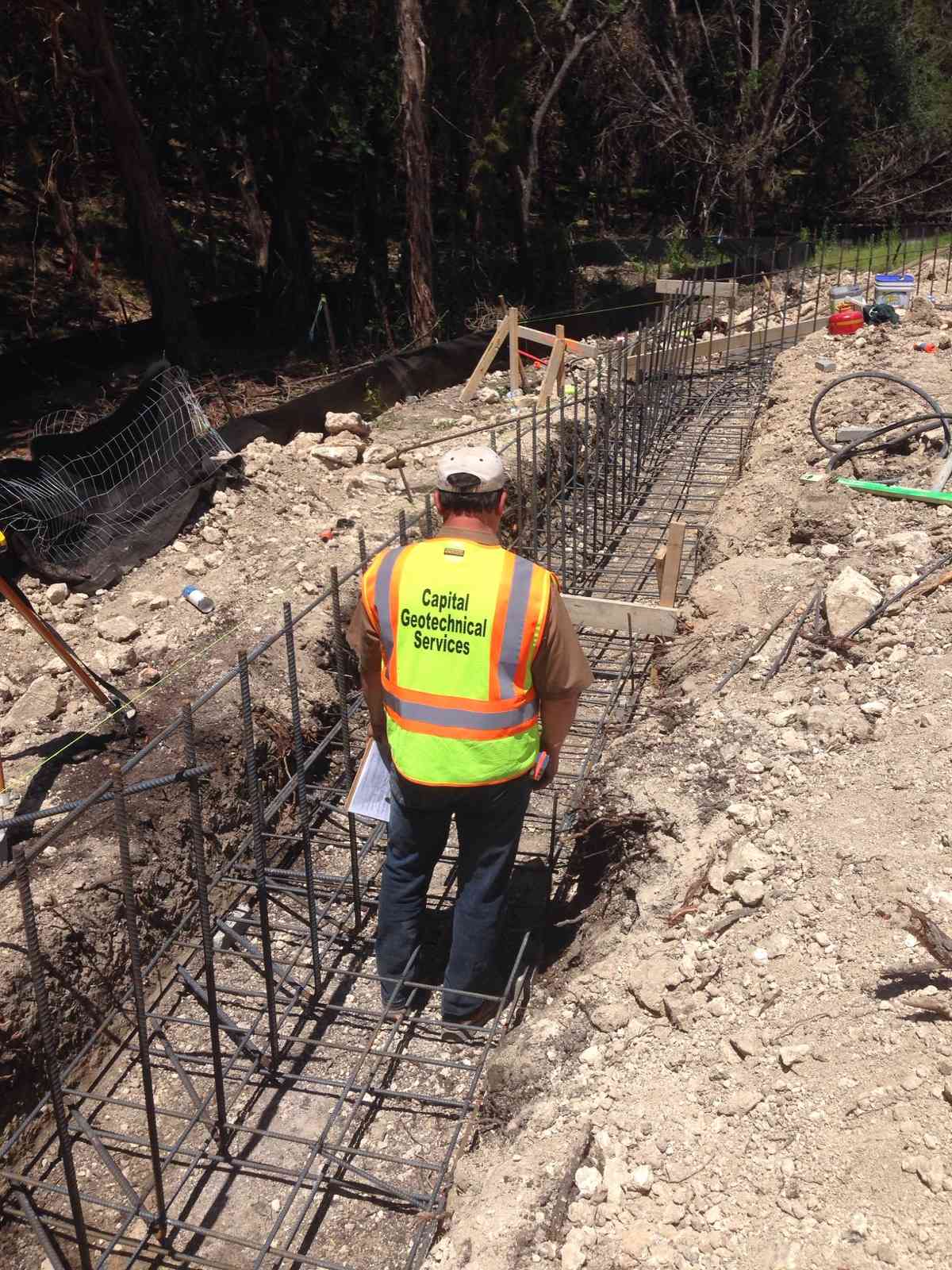
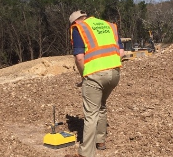
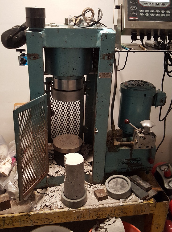
Subsurface exploration allows us to characterize the soil and rock conditions. One method that allows for deep penetration and good quality soil and rock sampling is to use a truck-mounted geotechnical drilling rig.
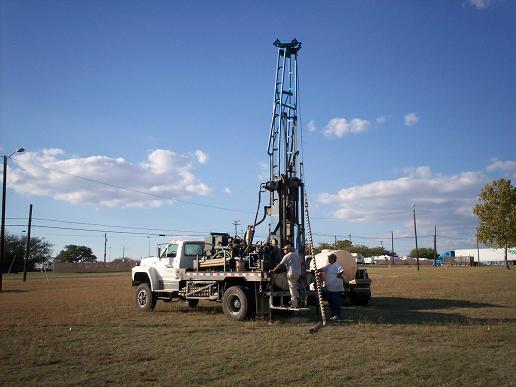
SUBSURFACE EXPLORATION METHODS:
Another method of exploration that we use consists of excavating "test pits" to expose the shallow subsurface profile and permit sampling and evaluation. Test pits are performed at locations where the geology and our experience indicates the likelihood of encountering a stratum of hard rock before a depth of 6 feet.
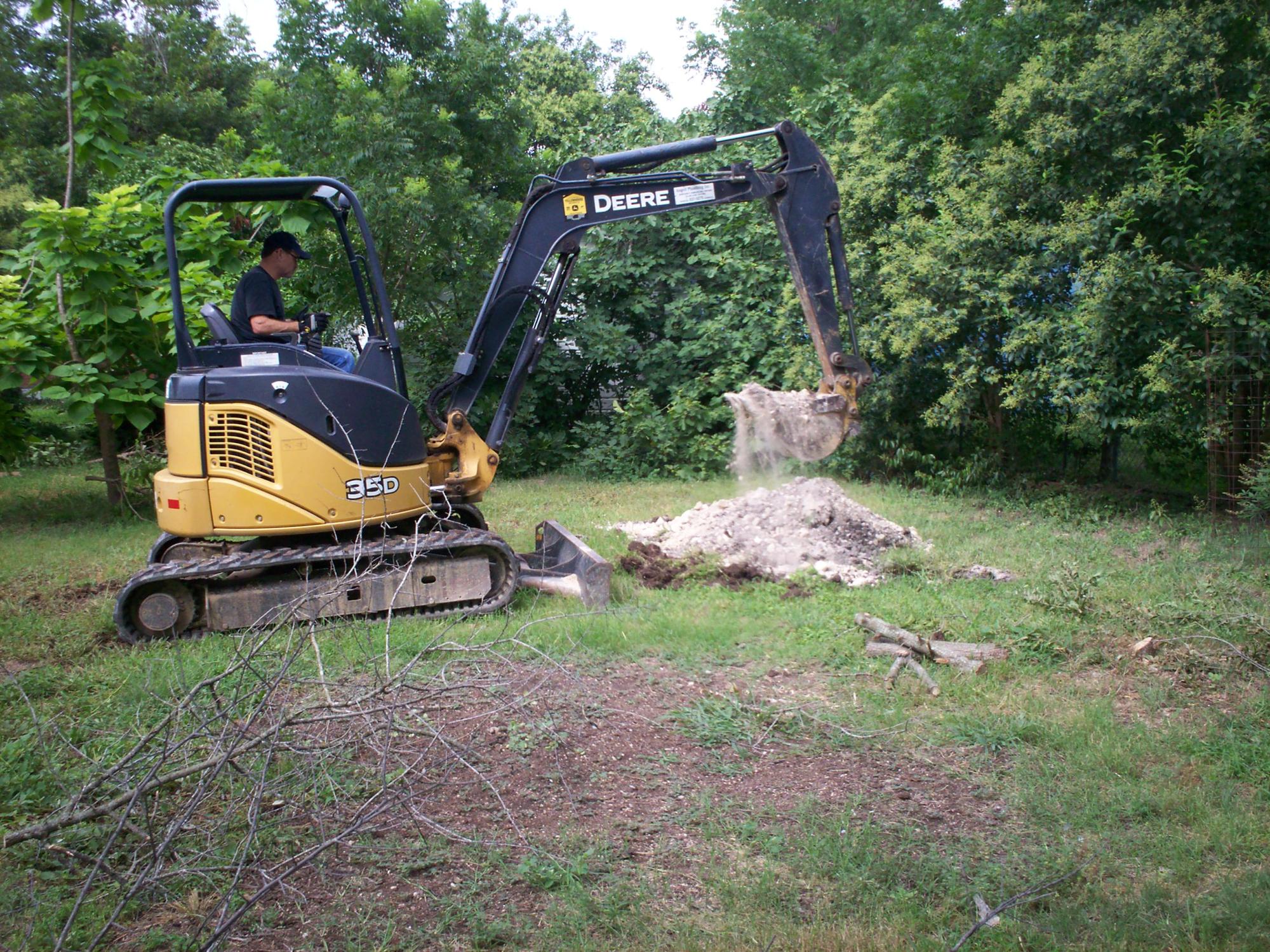
In restricted access conditions specialty rotary drilling tooling can be used to drill a pilot shaft that serves as a soil boring yielding auger cuttings as samples.
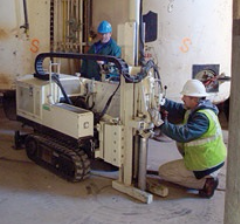
In restricted access conditions specialty percussion-tube sampling and rotary drilling equipment can be considered such as the tracked unit shown here. We have this Geoprobe 54LT tracked hydraulic machine for limited access conditions. We also have a portable (stand-up) Geoprobe unit that fits through doors for interior soil sampling through concrete slabs.
FORENSIC STUDIES:
We can perform slab surface elevation surveys to document the current (snapshot in time) surface profile of the concrete slab. These surveys should be performed immediately after new construction to document the as-built levelness of the slab, and later when soil and foundation movement is suspected.
Geotechnical forensic studies of homes, duplexes, apartment buildings, small commercial buildings, and pavement can be performed to assist with the evaluation of suspected soil and foundation movement, slab movement, or pavement movement and the associated distress (cracking, sticking doors and windows).
